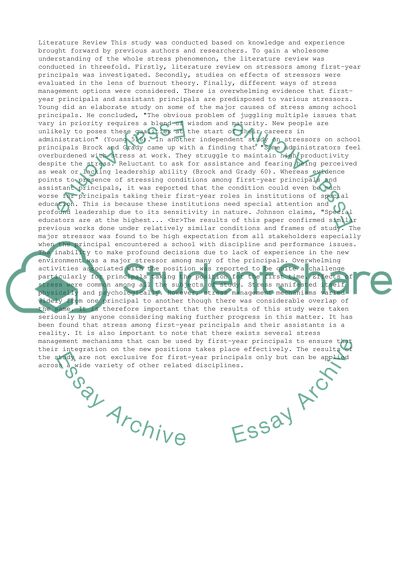Cite this document
(“Stressors and Stress Management Mechanisms among First-Year School Research Paper”, n.d.)
Retrieved from https://studentshare.org/management/1393968-stressors-and-stress-management-mechanisms-among-first-year-school-principals
Retrieved from https://studentshare.org/management/1393968-stressors-and-stress-management-mechanisms-among-first-year-school-principals
(Stressors and Stress Management Mechanisms Among First-Year School Research Paper)
https://studentshare.org/management/1393968-stressors-and-stress-management-mechanisms-among-first-year-school-principals.
https://studentshare.org/management/1393968-stressors-and-stress-management-mechanisms-among-first-year-school-principals.
“Stressors and Stress Management Mechanisms Among First-Year School Research Paper”, n.d. https://studentshare.org/management/1393968-stressors-and-stress-management-mechanisms-among-first-year-school-principals.


